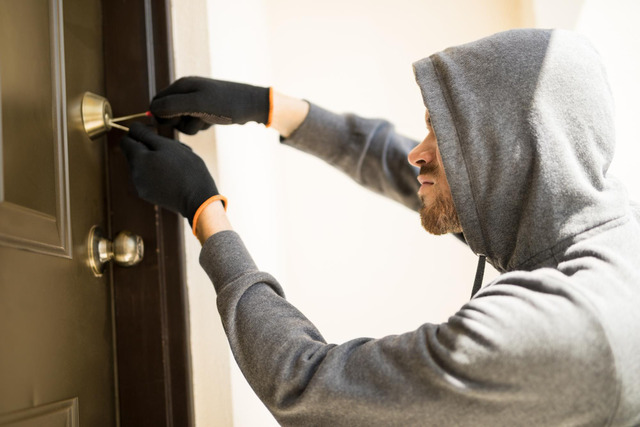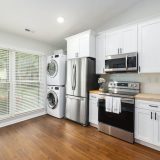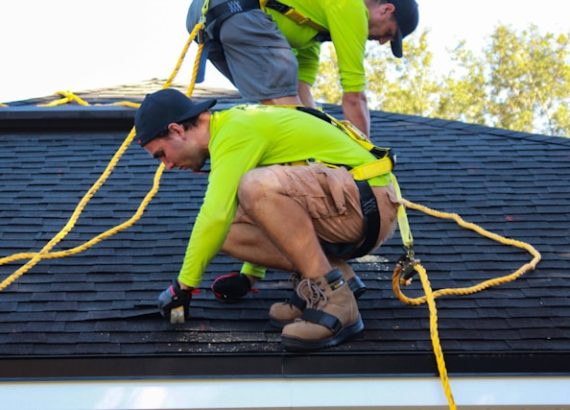How to Clean and Maintain Your Locks for Enhanced Home Security?

Your home’s security is paramount, and your door locks play a crucial role in safeguarding your property. Regular maintenance of your locks not only ensures their longevity but also enhances your home security. In this foolproof guide, we’ll take you by the hand and show you all the essential steps to keep your locks looking spick and span! From checking your door’s alignment to caring for your keys and knowing when to call a locksmith, we’ll cover it all to help you keep your home safe and secure.
Table of Contents
Make Sure Your Door is Hung Properly
Properly hung doors are the foundation of secure locks. When a door is misaligned, it can put pressure on the lock mechanism, leading to issues with your locks over time.
To Check If Your Door is Hung Correctly:
- Look for gaps between the door and the frame. A uniform gap indicates proper alignment.
- If you notice uneven gaps, consider calling a professional locksmith to assess and adjust the door.
- A locksmith can also inspect for any permanent damage caused by a misaligned door.
Clean and Lubricate Your Door Locks
Cleaning and lubricating your door locks are crucial maintenance tasks that should not be overlooked. They help ensure smooth operation and prevent dirt buildup that can compromise your home security.
Cleaning the Door Lock Mechanism
- Begin by cleaning the exterior of your lock with a soft cloth or soft-bristled toothbrush.
- Use warm water and mild dish soap to remove grime and dirt gently.
- Pay close attention to the keyway, where small particles tend to accumulate. Use pressurised air to clear any debris.
- Regular cleaning prevents dirt from interfering with your lock’s operation and extends its lifespan.
Can You Use WD40 to Clean Door Locks?
While WD40 is a versatile lubricant, it’s not the best choice for cleaning door locks. Using chemical cleaners on locks can strip their protective coating, leaving them vulnerable to wear and tear. Stick to lukewarm water and dish soap to clean your locks effectively.
How to Oil Your Door Locks?
Lubricating your locks is essential for smooth operation. Follow these steps to oil your door locks properly:
- Use a lock-specific lubricant, such as graphite or Teflon.
- Apply a small amount of lubricant into the keyway.
- Put the key in and take it out multiple times to spread the lubrication throughout the lock.
- Clean any debris from the key before using it in the lock.
How Often Should You Lubricate Your Door Locks?
Annual lubrication is typically sufficient to keep your locks working smoothly. However, if you encounter persistent issues, consult your lock’s manufacturer’s manual for specific recommendations. Try not to use too much lubricant on the door lock, as an excess of it can draw in dirt and dust.
Care For Your Keys Properly
Your keys are just as important as your locks when it comes to maintaining home security. Mishandling keys can damage both the key and the lock, making your door vulnerable.
- Avoid pulling or forcing the key to turn when it’s stiff.
- Don’t yank the key out of the lock if it feels stuck.
- Replace keys that show signs of wear and tear promptly.
- Keeping an unused original key for making copies ensures accurate replacements and maintains your lock’s integrity.
Regular Door Inspection
Perform routine inspections of your door to identify any issues that may affect your locks. Signs of poor door alignment include scuffs on the floor, sunlight gaps around the door, and difficulty in opening or closing.
If you notice any of these signs, take action to realign the door and ensure it functions correctly. Proper door care reduces the strain on your locks and extends their lifespan.
When Should You Call a Locksmith
While regular maintenance can address many lock issues, there are times when calling a professional locksmith is the best course of action. Signs that you need locksmith assistance include:
Difficulty Operating the Door
One clear indicator that you should call a locksmith is when you experience difficulty operating your door. If turning the key has become an exercise in frustration or if it refuses to budge entirely, this could be symptomatic of a deeper issue within the lock cylinder or with the key itself. For instance, if your key feels stuck and requires excessive force to turn, continuing to wrestle with it might result in breaking the key inside the lock—a scenario that unequivocally calls for a locksmith’s precision tools and skills.
Persistent Lock Problems Despite Maintenance
Persistent lock problems even after you’ve performed routine maintenance are another telltale sign that professional help is needed. This could manifest as recurring issues with locking or unlocking your door despite having cleaned out debris from the lock mechanism or realigned strike plates previously. These repeated difficulties suggest there may be wear-and-tear components or complex internal malfunctions that require technical knowledge beyond common DIY fixes.
Misaligned or Damaged Door Components
Misalignment of door components presents not only an immediate operational problem but also poses long-term security risks. Doors that don’t close properly due to misaligned bolts can leave gaps large enough for intruders to exploit using simple tools like credit cards or makeshift shims. Locksmiths have both the know-how and specialised equipment necessary to realign doors and frames so they function seamlessly together again—maintaining both ease-of-use and safety standards for occupants.
Locksmiths are experts in assessing and fixing lock-related issues, ensuring your home security remains intact.
Locksmiths’ expertise extends beyond just fixing broken locks; they are trained professionals who understand all facets of home security systems—from traditional deadbolts to modern smart locks—and how each component interacts within those systems. When keys need rekeying after moving into a new house (to ensure no previous residents retain access), when upgrading your home’s defences by installing more robust locking mechanisms (such as high-security grade 1 locks), or when setting up electronic access controls for added convenience without compromising on safety—all these scenarios benefit from consulting with an experienced locksmith.
Conclusion
Maintaining your door locks is a crucial aspect of home security. By following these maintenance tips, including proper door alignment, cleaning and lubrication, key care, regular inspections, and knowing when to call a locksmith, you can keep your locks in top condition. Don’t overlook the importance of these simple steps in enhancing the security and longevity of your locks. Prioritise home security and enjoy peace of mind knowing your property is well-protected.












